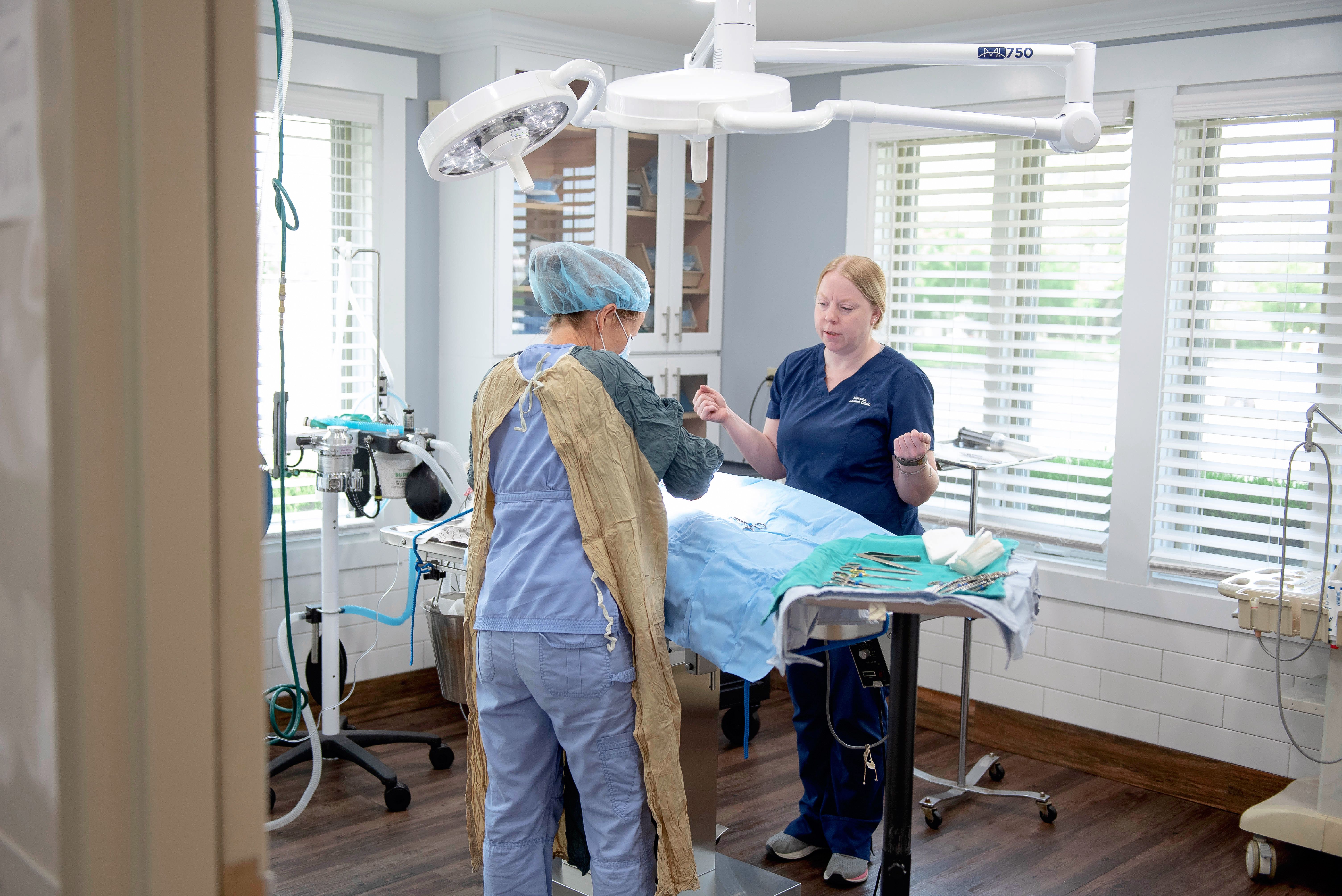Pet Surgery
At Mokena Animal Clinic in Mokena, IL, we are dedicated to providing your pet with comprehensive medical care. Whether your pet needs a simple surgical procedure or emergency pet surgery, our skilled Mokena veterinarians will make your pet’s comfort and recovery their top priority. We maintain a state-of-the-art surgical facility and treat every pet like a member of the family.
Common Surgical Procedures for Dogs and Cats
We provide simple and complex surgical procedures for dogs and cats. Our professional vets have years of experience with a range of surgical procedures, including:
- Spay and Neuter - This type of surgery is one of the most common procedures we provide.
- Dental Cleanings & Extractions - Your pet’s dental health is intricately connected to their overall health. We encourage you to bring your pet in for regular dental cleanings and x-rays. In some cases, surgical dental work may be recommended.
- Emergency Surgeries - Our surgical team is always ready for medical emergencies, which can include anything from wounds and broken bones to severe trauma.
- Cancer - Cancer treatments vary for dogs and cats, depending on the type of cancer and the progression of the disease. If your pet develops cancer, your vet will work with you to develop a treatment plan that may include surgery.
Pre- and Post-Surgery: What to Expect
Before Your Pet's Surgery
Before performing any surgical procedure, your pet will have blood work done to ensure there are no underlying medical conditions that would make surgery and anesthesia unsafe. Once your pet is cleared for anesthesia, your vet will place an IV catheter into one of their limbs so they can receive fluids and medications. Most anesthesia will not provide pain control, so your pet will be given a separate pain medication before surgery begins.
After Pet Surgery
Your pet will receive more pain medication after the procedure, and you will be given oral pain medication to keep you pet comfortable while they recover at home. Depending on the complexity and invasiveness of the surgery, your pet may be sore for the first couple of days.
Your vet will discuss a post-surgery treatment plan with you to help your pet recover as quickly as possible. Your pet will be drowsy for the first night, but should be responsive and able to walk. Discomfort is common, but if you feel that your pet is in a lot of pain, won’t stand up or move around, or refuses to eat and drink for more than 12 hours, please contact us immediately.
We know that undergoing a surgical procedure can be stressful for you and your pet, which is why we go out of our way to provide a comfortable environment, expert procedures, and a friendly, knowledgeable staff. The health and well being of your pet is our top priority.


